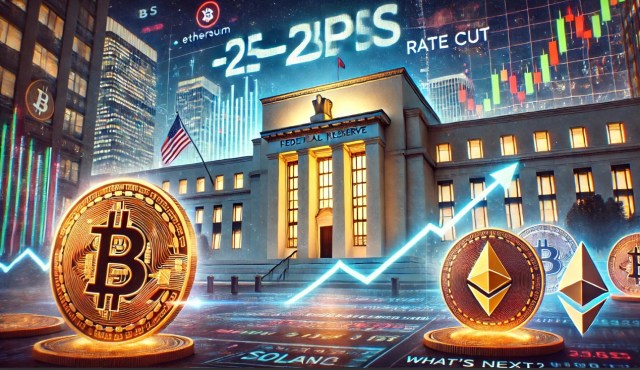Dubai rolls out new regulatory sandbox for DePIN and Machine Economy projects with peaq
peaq the Machine Economy computer, and Dubai’s Virtual Assets Regulatory Authority (VARA) signed an MOU to regulate onchain robotics, DePIN (Decentralized Physical infrastructure networks), and tokenized machines. The MOU, which was signed during GITEX 2025, is part of the efforts to build a Machine Economy in the UAE, including the regulatory guidelines, education, data reporting, and more.
A “machine economy” is a future economic model where intelligent machines act as independent economic agents, capable of autonomous transactions, contract negotiation, and service delivery.
It includes technologies such as Internet of Things (IoT), Artificial Intelligence (AI), and blockchain, which allow devices and systems to interact and exchange value without human intervention. Real-world machines generating value 24/7 make for a new kind of dynamic real-world asset (RWA). peaq recently unveiled the world’s first tokenized robo farm in Hong Kong and its Web3 and Robotics software development kit (SDK).
The partnership agreement will focus on four major things: a Machine Economy Free Zone support, where VARA acknowledges the MEFZ, a regulatory sandbox and infrastructure hub for Machine Economy in the UAE, and will support it on a case-by-case basis by organizing key discussions with Dubai decision-makers.
peaq, for its part, will provide VARA with MEFZ-related data, share its recommendations for regulations related to the Machine Economy, and flag key challenges to the industry’s growth.
“The UAE is one of the world’s leading hubs for innovation in the fields of Web3 and applied robotics,” says Leonard Dorlöchter, co-founder of peaq. “This perfectly positions it to blaze the trail in machine tokenization, piloting this model and setting the benchmark and template for the rest of the world to follow. This memorandum of understanding is a powerful foundation for that, paving the way for future collaborations and opportunities for the entire Machine Economy.”
Also within the MOU is regulatory guidance where both parties will guide projects built on peaq that want to apply for a license within VARA. VARA and peaq will hold joint events for applicants, both on Machine Economy affairs and general compliance; peaq will also facilitate introductions between prospective applicants and VARA.
Additionally, VARA and peaq will collaborate on education, both technical and compliance, for those in the Machine Economy realm.
Finally, both parties have agreed to share economic data, aggregating anonymized data on the ecosystem for VARA to use for its sector research and for developing sustainable economic models.
Machine Economy builders can get licensed in Dubai
As per the press release, this is an important milestone as it supports Machine Economy builders aiming for a compliant launch in Dubai. It also bolsters VARA’s efforts in regulating the nascent Machine Economy with data and builder insights, and establishes Dubai as the top destination for teams building Robotics, DePIN, and Machine RWA projects.
Mathew White, CEO of VARA noted that Dubai is committed towards building a Machine Economy as part of their aspirations for digital a economy. He noted, “Through this MoU with peaq, we are laying the groundwork for regulatory clarity in areas such as on-chain robotics, DePIN, and tokenized machines. By combining innovation with responsible oversight, we aim to position Dubai as the global benchmark for the safe and sustainable growth of this next generation asset class.”
DePin’s market cap stood at over $50 billion in 2024 and is projected to reach up to $3.5 trillion by 2028.
If you're reading this, you’re already ahead. Stay there with our newsletter.
You May Also Like

Franklin Templeton updates XRP ETF filing for imminent launch

Fed Lowers Rates By 25bps: How Bitcoin And Crypto Prices Responded And What’s Next

Canada’s budget promises laws to regulate stablecoins, following US
Canada’s government unveiled a plan to regulate stablecoins, requiring fiat-backed issuers to maintain sufficient reserves and adopt robust risk management measures. Canada is set to introduce legislation regulating fiat-backed stablecoins under its federal budget for 2025, following the footsteps of the US, which passed landmark stablecoin laws in July.Stablecoin issuers will be required to hold sufficient reserves, establish redemption policies and implement various risk management frameworks, including measures to protect personal and financial data, according to the government’s 2025 budget released on Tuesday.The Bank of Canada would allocate $10 million over two years, starting in the 2026-2027 fiscal year, to ensure everything runs smoothly, followed by an estimated $5 million in annual costs that will be offset from stablecoin issuers regulated under the Retail Payment Activities Act.Read more